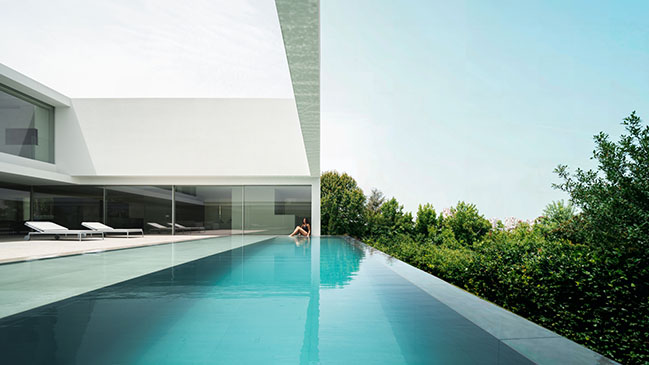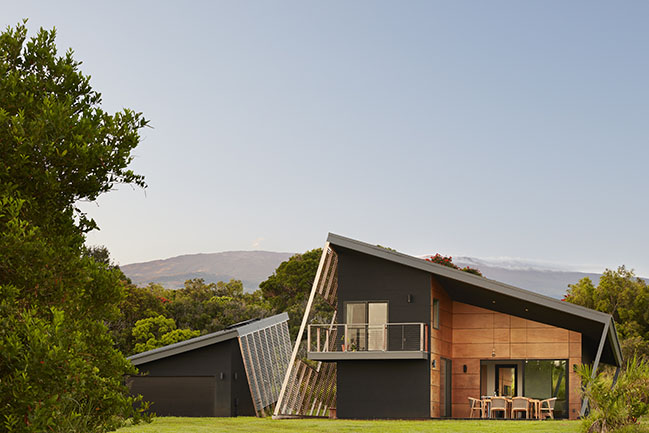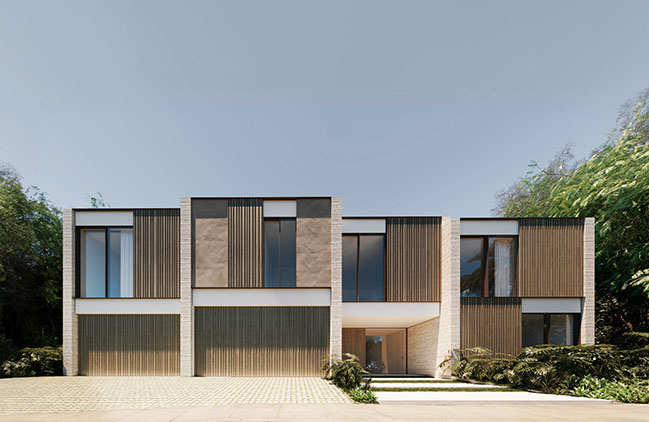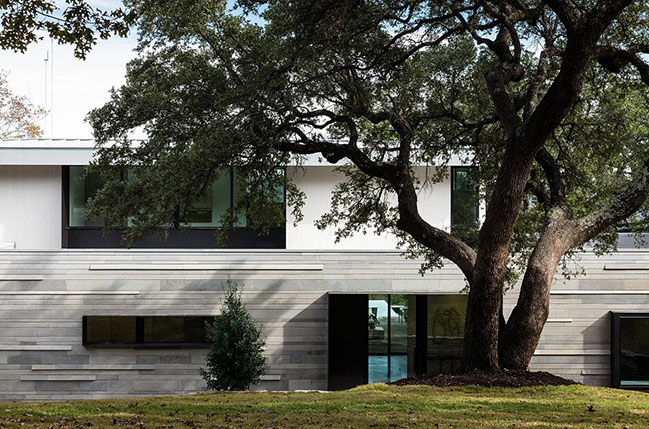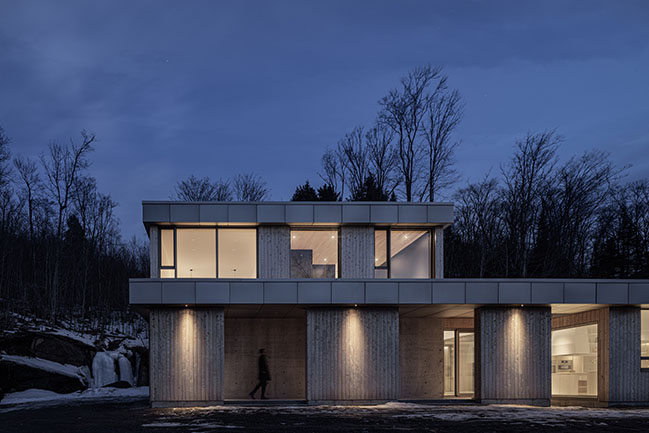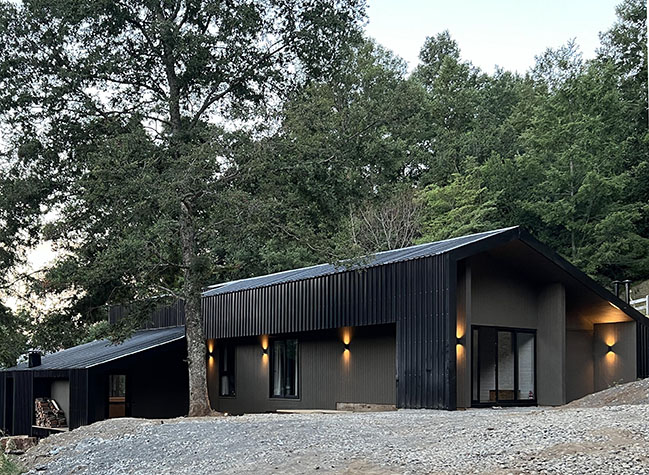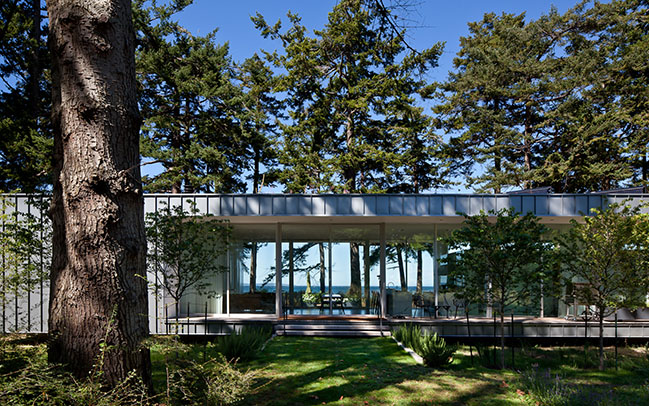06 / 03
2024
Situated in the arid desert region of Nokha in Rajasthan, India, the Narsighar house imbibes the traditional planning principles of the regional architecture prevalent for centuries in Rajasthan...
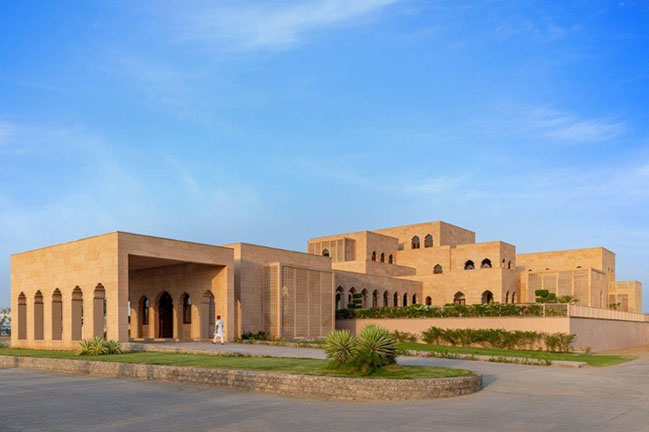
> Nokha Village Community Centre by Sanjay Puri Architects
> The Street by Sanjay Puri Architects
From the architect: Most of the houses & palaces built in this region for centuries had courtyards for passive cooling, thick stone walls to combat the excessive heat and stone ‘jali’ screens to mitigate heat gain.
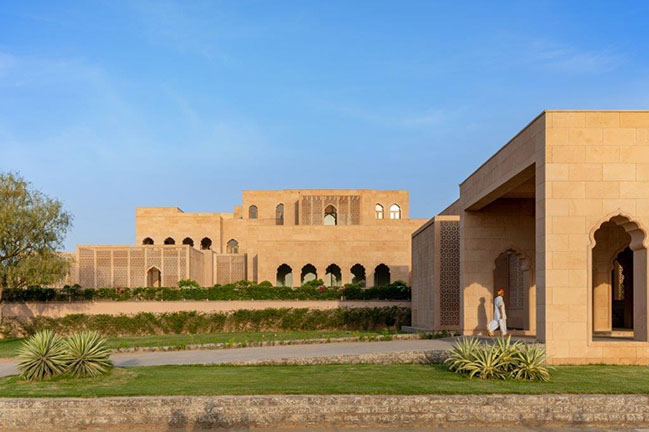
The Narsighar house is punctuated with a series of courtyards and is built in the local sandstone available in the immediate vicinity. Each of the living spaces opens into sheltered outdoor spaces screened with perforated stone panels. These screens, in addition to reducing heat gain, also protect the inner spaces from the sandstorms prevalent in the region.
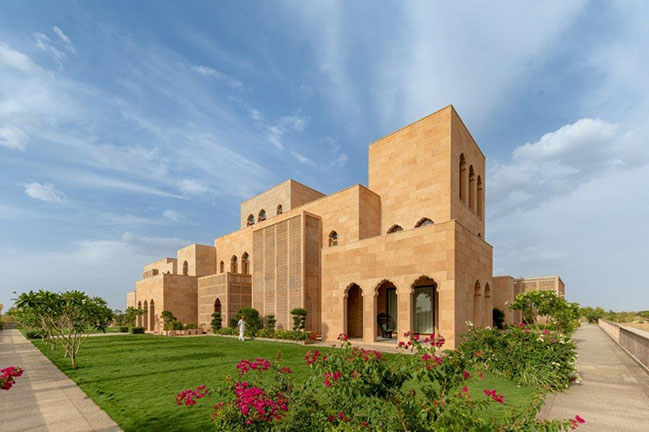
The home based on the client's needs to accommodate 4 generations has 9 bedrooms with multifunctional living spaces, sheltered courtyards, and patios all around.
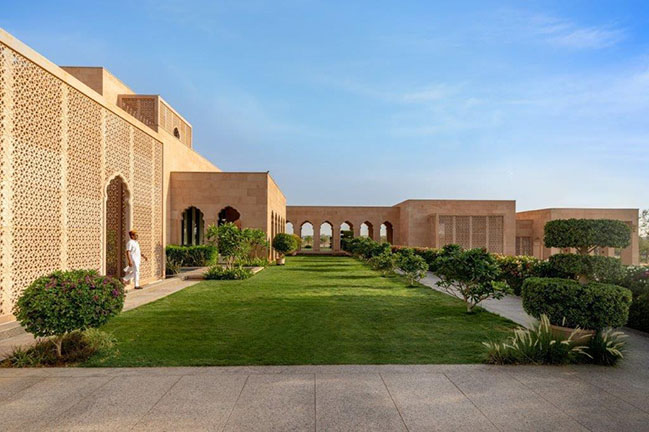
In addition to the traditional planning principles, elements of traditional Rajasthan architecture, including multifoil arched windows, patterned stone screens, stone pergolas, inlay work, and carving work, accentuate the spaces. In India, Rajasthan is home to many craftsmen with specialties in stone carving, marble inlay, carpentry work, mirror work inlay, lime plastering, and more. The entire house was executed and worked upon by these local craftsmen, reviving many traditional techniques.
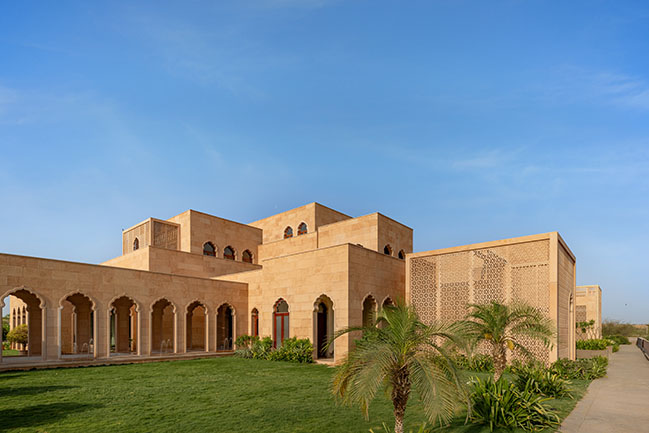
Although the house appears large, over 40% of the area is in the form of open courtyards, circulation spaces, and sheltered outdoor patios. Each volume is articulated individually, with the home being perceived as a composition of varying volumes.
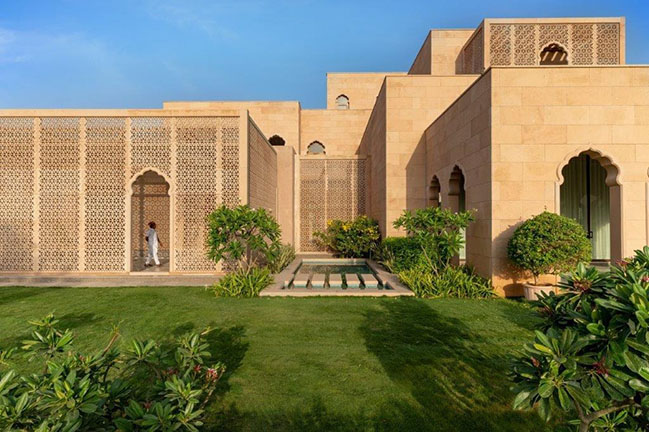
An entry car porch opens into a sunlit courtyard that leads to a sheltered stone arcade, flanked by water troughs and gardens for passive cooling before one enters the house. The skylit entrance lobby within the house, flanked by a living room and an open seating area, leads one into a large central courtyard.
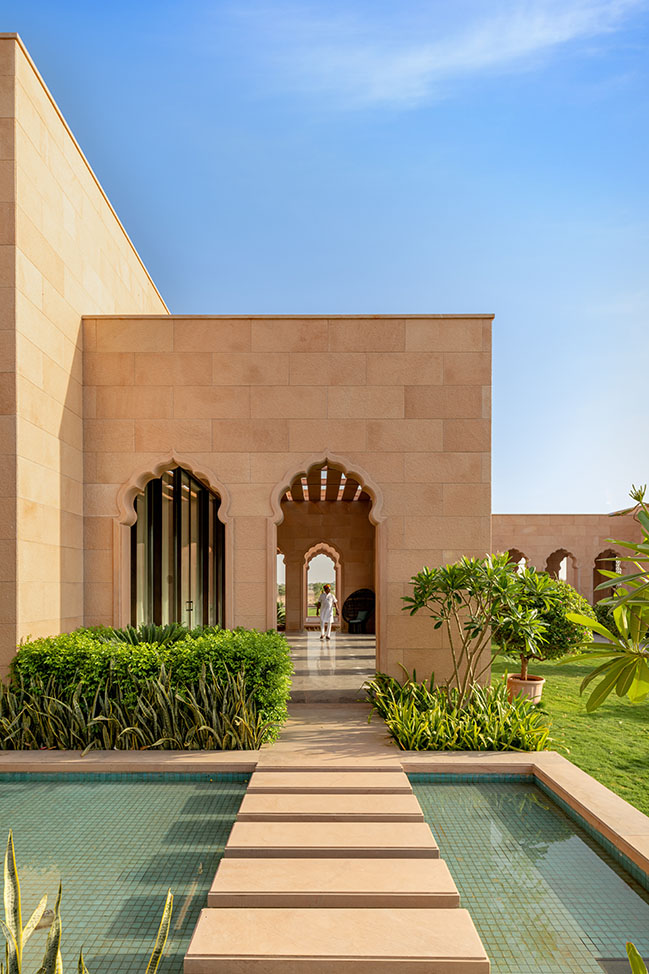
The main courtyard punctuating the house is naturally ventilated through clear storey windows with the circulation skirting its perimeter. Sectionally, there is a flow of different volumes within. Most of the rooms are 4M high, with the main living room at 6.5M high, the central courtyard to 12M high, the north and south courtyards 8M high, and the outdoor patios 3.6M high. Every living space and bedroom in the house opens into sheltered outdoor spaces, creating transitional volumes between the inside and the outside to mitigate heat gain. Indirect sunlight permeates all the spaces, filtered through arches or stone screens that create different shadow patterns throughout the day.
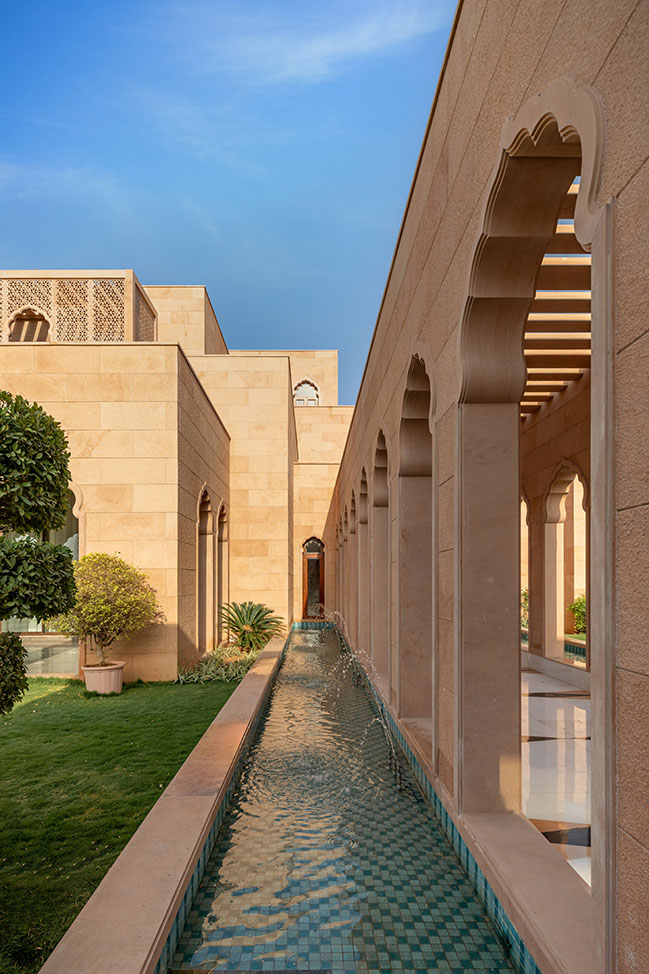
This house was designed with traditional principles and materials for passive cooling, with contract labor from the nearby villages, stone obtained from the vicinity, craftsmen from the region, and all materials sourced locally. The marble, stone, wood, lime plaster, and furniture were all procured from Rajasthan.
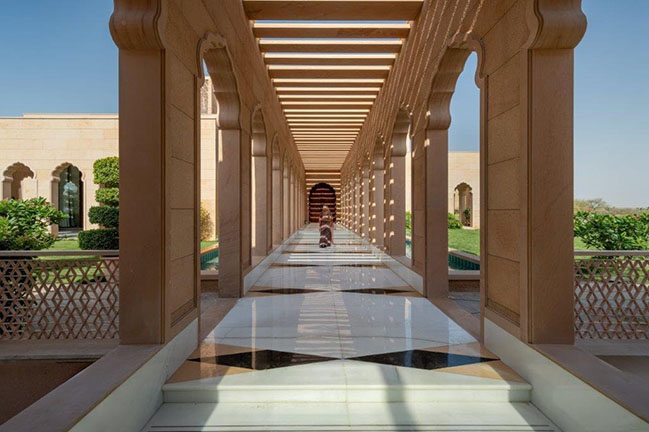
Designed contextual to the climate, location, and heritage of the region, Narsighar revives Indian traditional planning principles and revives traditional crafts, creating an energy-efficient home built to last for centuries, and for future generations.
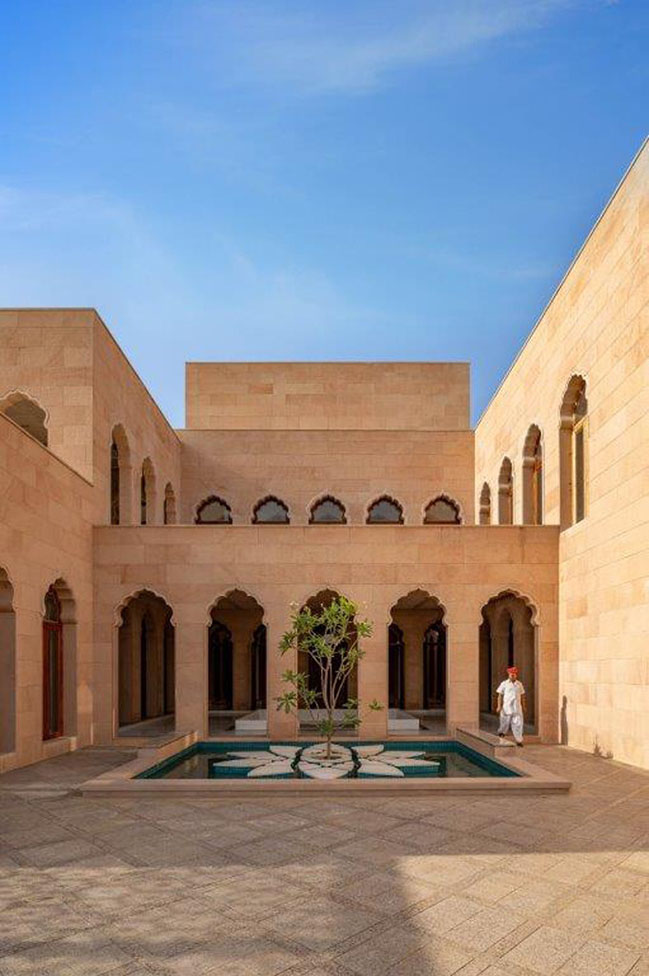
Architect: Sanjay Puri Architects
Location: Nokha, Rajasthan, India
Year: 2024
Gross Floor Area: 3,344.67 sqm
Lead Architects: Sanjay Puri, Nina Puri
Design Team: Pooja Sampat, Ayesha Puri, Tanya Puri, Nilesh Patel, Ashwini Mogaveera, Sarika Kadam
Photography: Vinay Panjwani
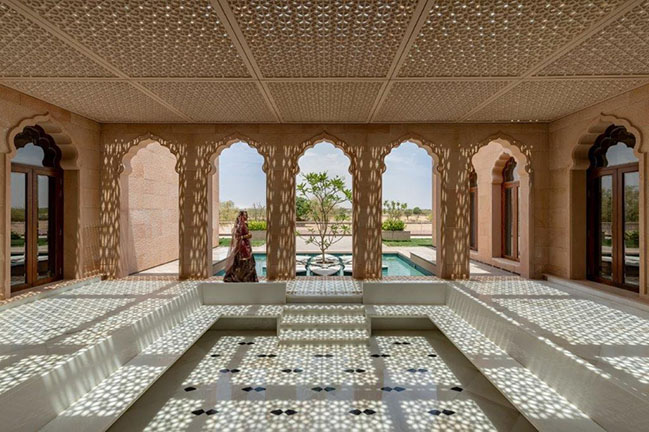
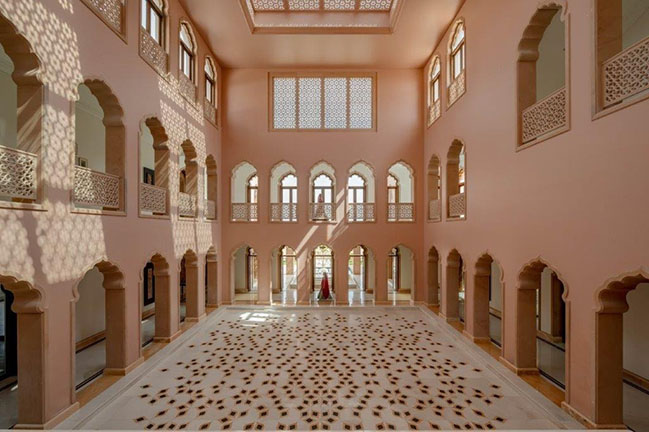
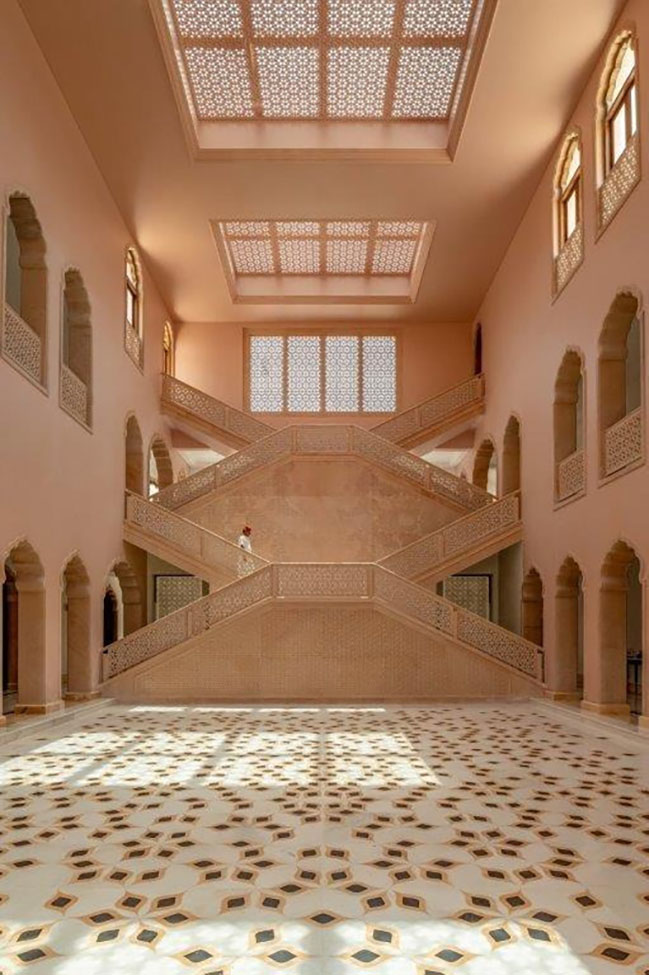
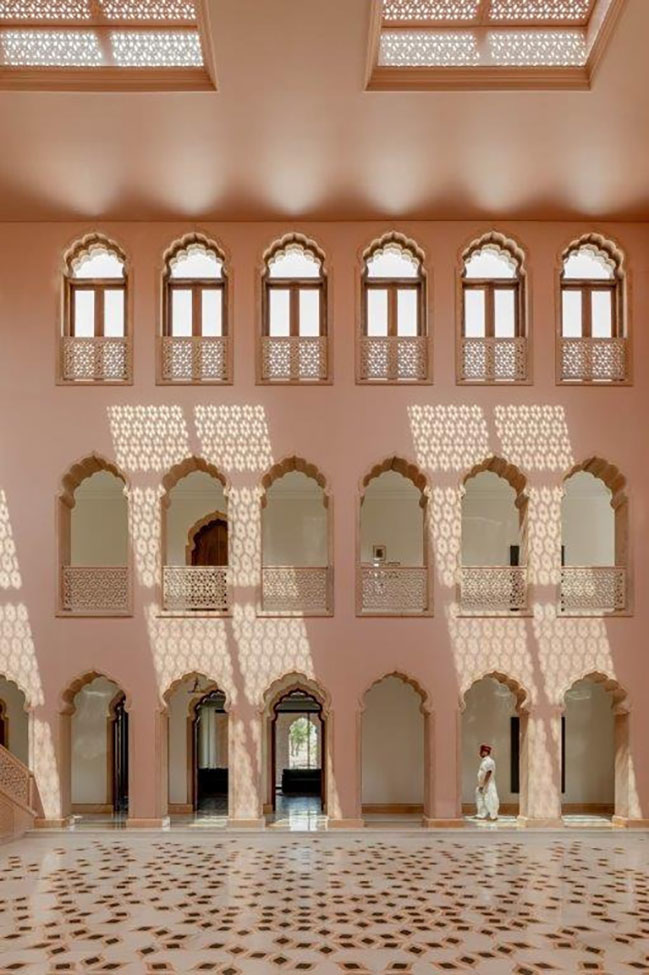
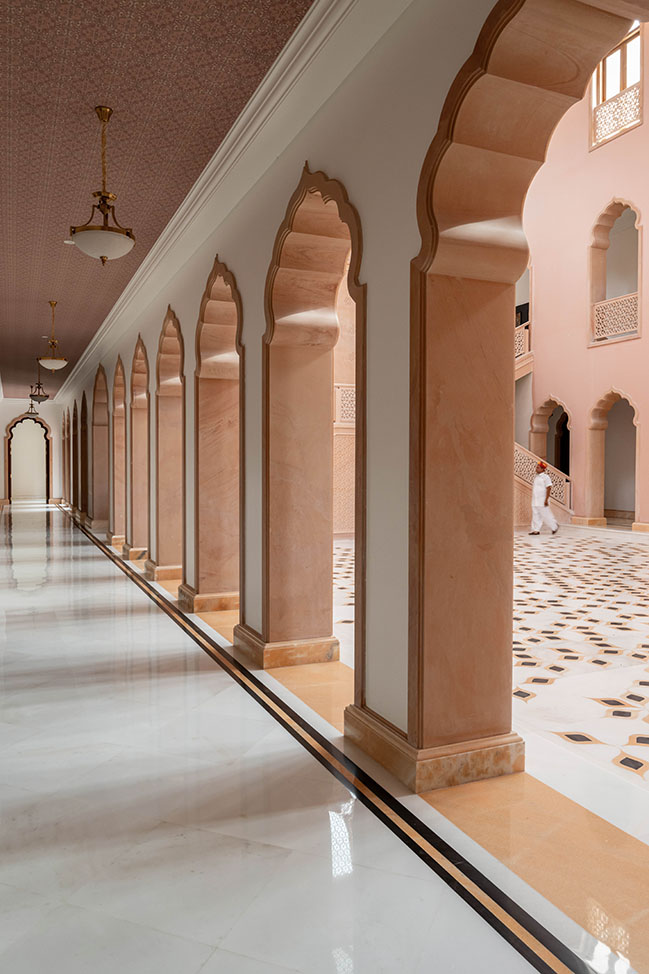
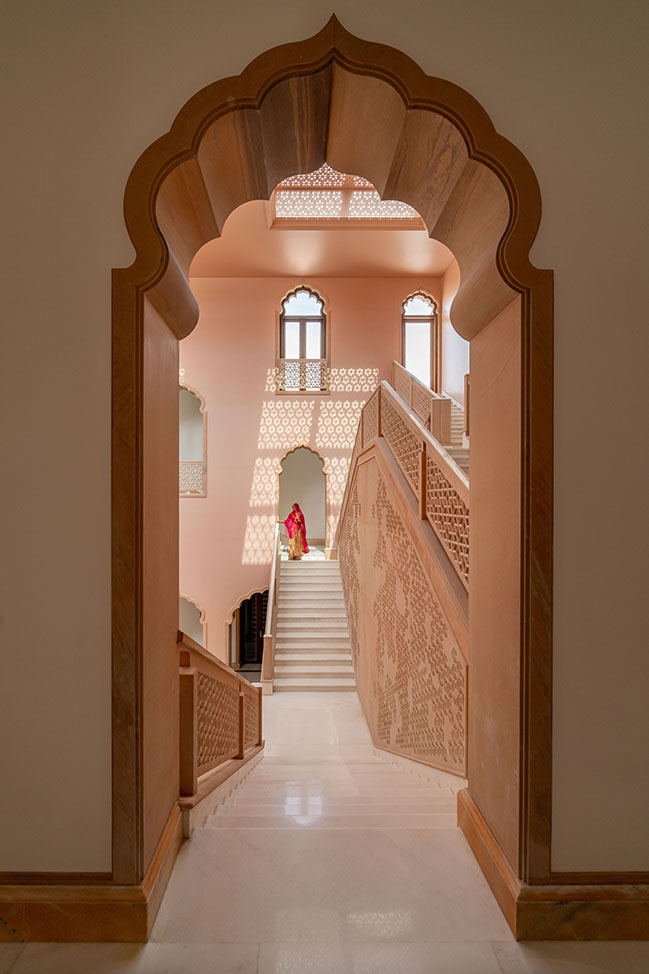
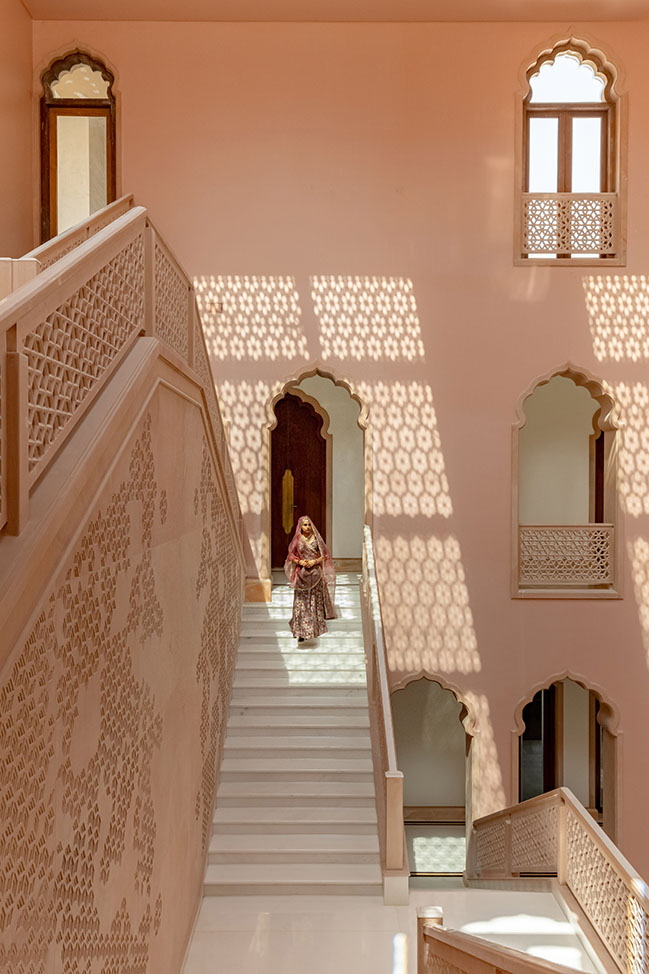
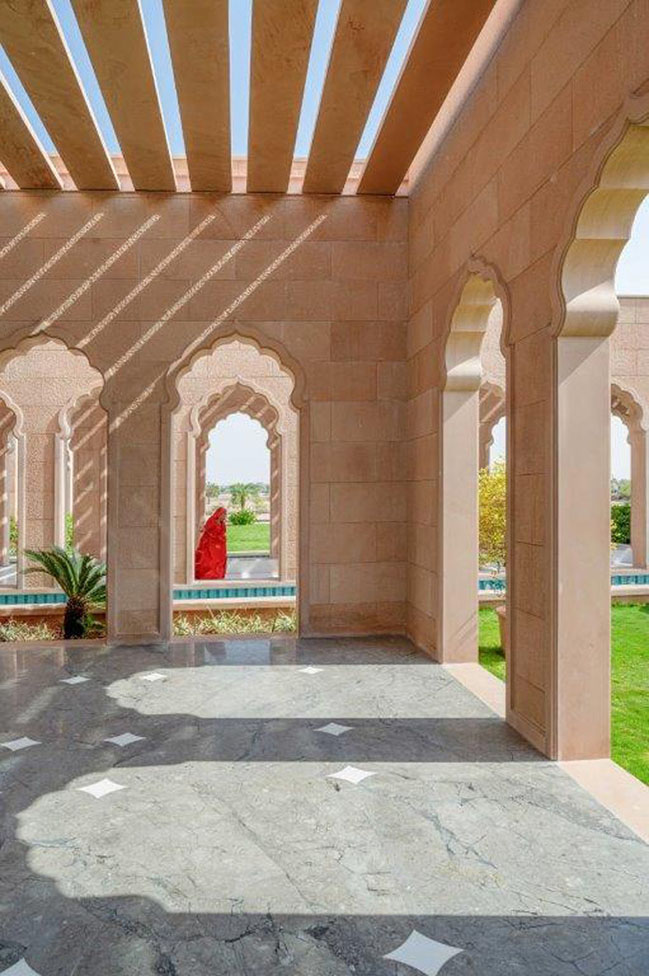
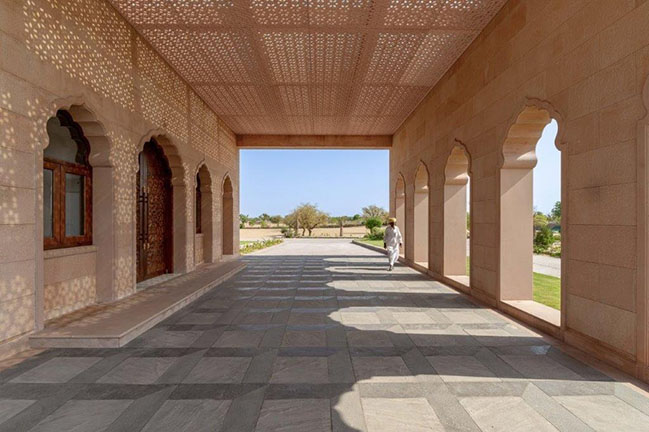
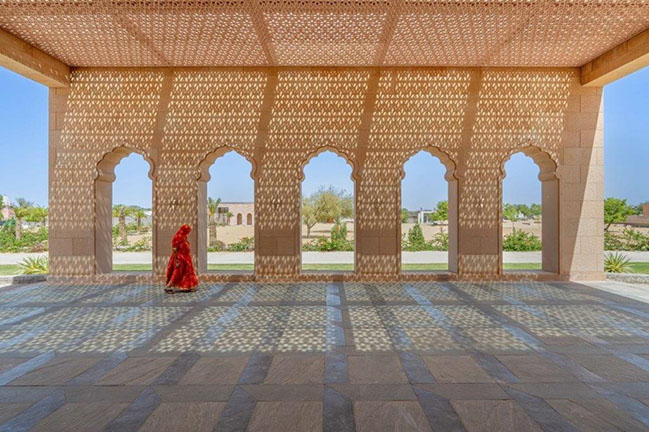
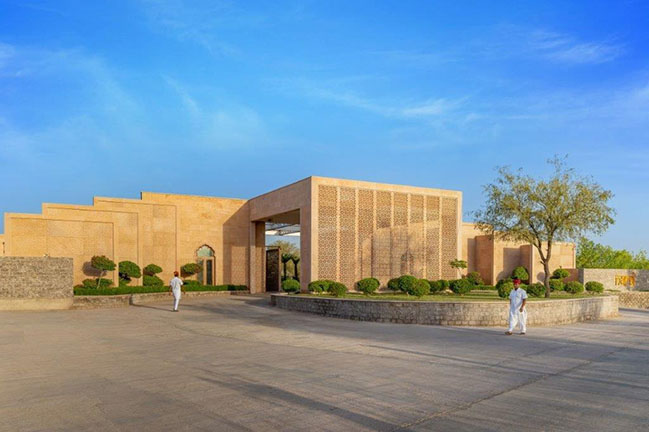
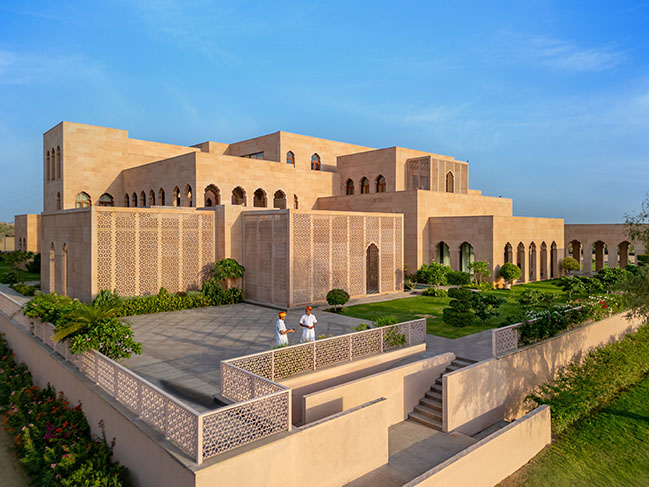
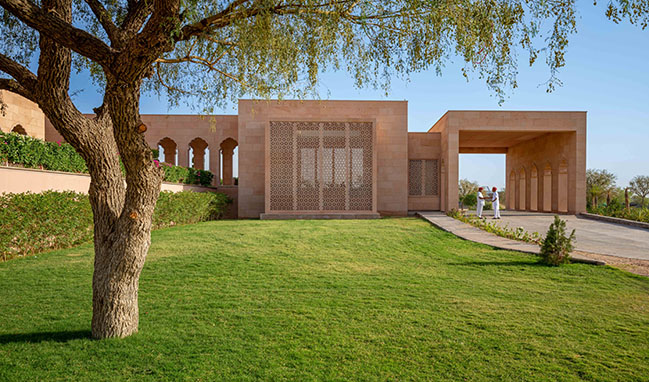
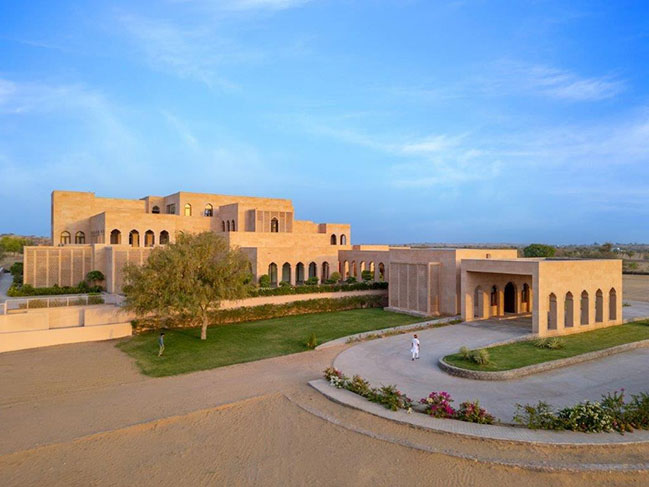
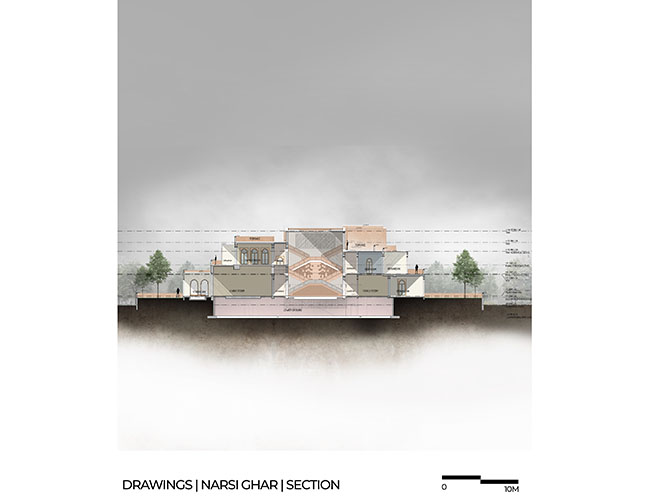
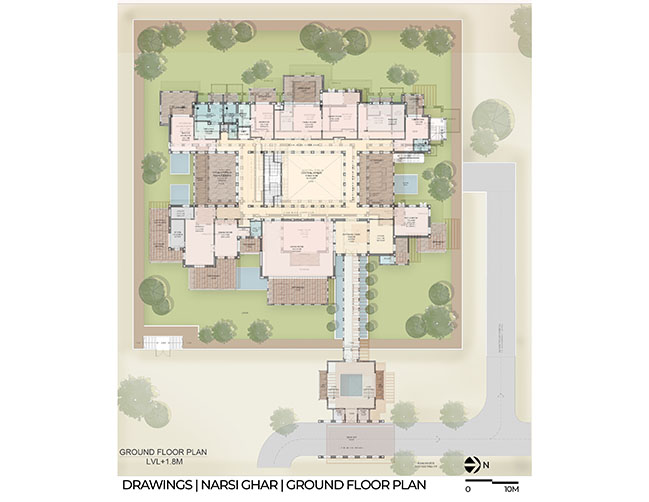
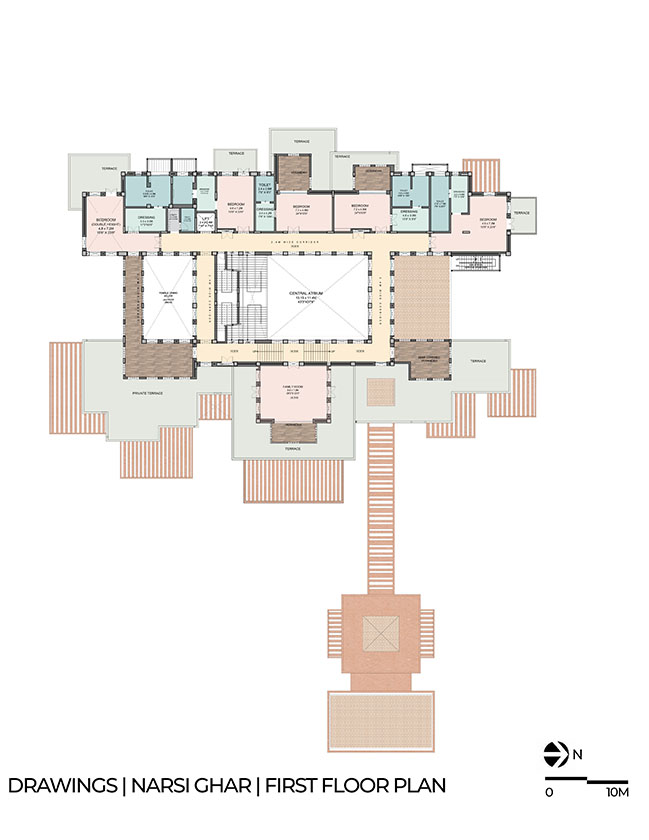
Narsighar by Sanjay Puri Architects
06 / 03 / 2024 Situated in the arid desert region of Nokha in Rajasthan, India, the Narsighar house imbibes the traditional planning principles of the regional architecture prevalent for centuries in Rajasthan...
You might also like:
Recommended post: North Beach by Heliotrope Architects
